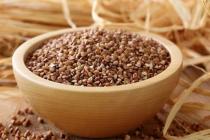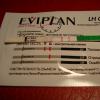Question.It has become a tradition for some Muslims to complete prayer in mosques, or houses, or other places, that they greet each other and shake hands, ending this with a short dua, and then disperse. What is the legal norm for this tradition in Islam?
Answer.After praise to Allah, the Benefactor, the Giver, as well as blessings and greetings to our Lord Muhammad, who spoke the truth. Truly, this tradition, maintained between praying Muslims and Muslim women, is true and there is nothing reprehensible in it. This is confirmed by the hadiths from the prophetic Sunnah, not only encouraging Muslims to exchange greetings and shaking hands with each other, but also informing that this is the worship of Allah Almighty, as well as the possibility of forgiving sins and achieving Paradise. These prophetic hadiths, however, do not set a specific time and place for this, moreover, they absolutely do not limit the greeting and handshake to either place or time, leaving the choice for the Muslim. And therefore, you can greet and shake hands at any time, whether after prayer or at any other time and anywhere - in the mosque or outside.
The opinion that shaking hands and greeting after prayer is a bad innovation has no basis in Sharia texts and this opinion is erroneous for two reasons:
1. The absence of texts about any action or inaction is not an argument in their prescription or non-prescription. The argument of prescription will be only a specific command, and the argument of non-prescription is a prohibition on the commission of this act;
2. If the Sharia texts are given in a general form, then they indicate the commission of any action regardless of time, place and form, that is, the legislator reserves the right to choose the time, place and form for the slave. There are many examples of this, such as in the Word of God: "Remember me and I will remember you." Surah "Cow", ayah 152. This ayah does not limit the remembrance either by time, place, form or quantity, leaving the right of choice for the slave so that he remembers Allah Almighty at any time and in any place and in any form as he considers fit he himself. Based on this, Muslims are allowed to greet each other and exchange handshakes after prescribed prayers.
Below are Sharia texts encouraging greeting and shaking hands.
1. Allah Almighty said: "And when they greet you, respond in kind or greet you more kindly." Surah "Women", verse 86.
2. One person asked the Messenger of Allah (peace and blessings of Allaah be upon Him): "What is the most beautiful in Islam?" He replied: "When you treat with food, and greet everyone you know and don't know." Hadith agreed.
3. The Prophet said (peace and blessings of Allaah be upon Him): "O Muslims! Spread greetings and treat food, maintain family ties and pray while others sleep, then you will enter Paradise with greeting." Brought Attirmizhi and said: "This hadith is good, authentic."
4. Said the Messenger of Allah (peace and blessings of Allaah be upon Him): "You will not enter Paradise until you believe, and you will not believe until you love one another. Should I point you to the work in which you will love one another? -Spread greetings between yourself. " Narrated by Muslim.
5. Once the Messenger of Allah (peace and blessings of Allaah be upon Him) was passing in the mosque next to a group of women sitting and He greeted them with words and a raise of his hand. Brought Attirmizhi and said: "This hadith is good."
Shaking hands is Sunnah at any meeting as given by Abu Daud and Attirmizi from Albar: The Messenger of Allah (peace and blessings of Allaah be upon Him) said: "When two Muslims meet and shake hands, Allah will forgive them before they have time to leave." Also from Qatad: "I asked Anas:" Did the companions of the Messenger of Allah (peace and blessings of Allah be upon Him) shook hands? He replied: "Yes!" Narrated by Bukhari.
And how reliably it is given that some of the Companions shook hands with the Messenger of Allah (peace and blessings of Allaah be upon Him) after prayer, holding on to his honorable hands. This is quoted in Saheeh al-Bukhari from Abu Juhaifa (may Allah be pleased with him): "The Messenger of Allah (peace and blessings of Allaah be upon Him) went out to Batha at noon and, after washing, performed the lunch and sunset prayers, two rak'ahs each, ( that is, he combined two prayers, because He was on the way), and a staff was thrust into the ground in front of Him. After the prayer, people came up to Him and taking His hand, they passed it over their faces. I also took His hand and put it to my face and she was cooler than snow and nicer than musk. "
In love with Allah, Imam Attabari (694 y.c.) said: "The tradition of shaking hands after collective prayers brings people closer together, especially after sunset and evening prayers, if this is done with a good intention like receiving grace, achieving friendship and others." These words of Imam Attabari indicate that all Muslims in his time shook hands after prayer, and as you know he lived in the seventh century AH and they borrowed this tradition from previous generations. The hadith states: "What Muslims consider a blessing, then Allah is good, and what they think is bad, then Allah is bad." Regardless of whether this hadith is quoted from the Prophet himself (peace and blessings of Allaah be upon Him) or from the companion of Ibn Mas'ud (may Allaah be pleased with him), it clearly indicates the desirability of fulfilling Muslim norms that do not contradict Sharia, because this is the unanimous opinion of the ummah.
And of course, the most obvious argument for the prescription of Sharia norms performed by worshipers before dispering after prayer are those that Attirmizhi and Abu Daud bring from Abu Hurayr (may Allah be pleased with him) according to the Messenger of Allah (peace and blessings of Allaah be upon Him): whoever arrives at the meeting should greet the others, and whoever wishes to leave should greet again and the first greeting is not more important than the second. " That is, the hadith clearly indicates the desirability of greeting each other at every meeting, whether it be when entering a mosque, when leaving a mosque or when parting.
And as for the dua before disbanding, it is also prescribed in the hadith. The Messenger of Allah (peace and blessings of Allaah be upon Him) towards the end of his life, wishing to leave the meeting, said: "You are holy, O Allah, I testify that there is no god besides You, I ask You for forgiveness and repent before You." And one person asked: "O Messenger of Allah! You said words that you did not utter before ?!" He replied, "This is the atonement for everything in the meeting." Cited by Abu Daud and Hakim in his collection with a reliable chain.
Abdullah bin Umar (may Allah be pleased with them) said: "The Messenger of Allah (peace and blessings of Allaah be upon Him) rarely left the meeting without praying for His Companions:" O Allah! Dress us with such fear of God that will protect us from disobedience to You, obedience to You, leading to Your Paradise, steadfastness in faith that will diminish our worldly troubles! Oh Allah! Let us use our hearing and sight and our strength while you give us life until our death, and bring down our vengeance against those who are unjust to us, and do not leave us alone against those who are at enmity with us, and do not test us in our faith, and do not make this perishable world our striving and the goal of our knowledge, and do not give power to those who are unmerciful to us! "He brought Attirmizi and said:" The hadith is good. "
It may happen that among the worshipers there will be one who is going on a journey and is Sunnah to spend it with prayer, as the Messenger of Allah (peace and blessings of Allaah be upon Him) did when addressing a prayer for the traveler: "I entrust your faith, family and property to Allah yours, and a happy outcome of your deeds. " Brought Attirmizi and said: "Hadith is good, authentic." Sharia texts concerning prayers and appeals to Aallah are given in a general form without restrictions on time and place, so Muslims can turn to Allah anytime and anywhere they wish.
Some who argue about the inadmissibility of shaking hands and greeting after the prescribed prayer are troublemakers and liars with absolutely unfounded statements. Supporters of such an opinion should not condemn others and bring confusion and strife into the ranks of Muslims, thereby deserving only sins, but not retribution. What about the situation when someone stretches out his hand to the troublemaker in order to greet him after the prayer, will he stay with his or give in? For to give in and spread friendliness among Muslims is dearer to Allah Almighty than to distance oneself from an act that is neither undesirable, let alone forbidden, since a handshake is either permissible or desirable.
Regarding another statement about the undesirability of greetings due to its inclusion in prayer, it should be noted that this is also not true. For all Muslims know the Fardas and Sunnahs of Namaz, they know that prayer begins with a takbir and ends with a greeting, and none of them thinks that a handshake is counted among the actions of prayer, otherwise they would sometimes not leave this tradition.
And Allah knows best and He is wiser.
The work of the pen of Professor Sheikh Abdurrazzak Abdurrahman Assagdi
16 shagban 1437 AH, May 23, 2016
Tatarstan, Bolgar.
Can I do du'a after prayer?
With the name of Allah the Merciful, the Merciful!
- Praise be to Allah - the Lord of the worlds, peace and blessings of Allah to our prophet Muhammad, his family members and all his companions! And then: Hadith, which speaks of prayer at the “end of prayer” (dubur al-sala), then scholars disagreed about the understanding of these words. Some said that it was about the time before salam, when a person sits on tashahhud and calls out to Allah, and this opinion was chosen by Sheikhul-Islam Ibn Taymiyyah. However, Hafiz Ibn Hajar said in Fathul-Bari that Sheikhul-Islam was mistaken in this matter, and that “the end of prayer” is after Salam. Sheikh Ibn Usaymin followed Sheikhul-Islam in his opinion, saying that everything that came from the prayer (du'a) after namaz is about tashahhud before salam. And what came from the words of the remembrance of Allah (dhikr), then we are talking about the remembrance of Allah after the salam. Their arguments are as follows: From Ibn Mas'ud it is reported that the Messenger of Allah (peace and blessings of Allah be upon him) said: "When one of you sits down after every two rak'ikats, let him say 'at-tahiyyat', and then he can choose whichever prayer he likes best!" Ahmad 1/437, an-Nasai 1/174. The hadith is authentic. See "al-Silsilah as-sahiha" No. 878. Allah Almighty said: "When you complete the prayer, then remember Allah while standing, sitting or lying on your sides!" (an-Nisa 4: 103). This opinion is, of course, very strong, but not unambiguous, since there are many prayers that the prophet (peace and blessings of Allah be upon him) pronounced after the salam !!! For example, Sauban said: “After finishing praying, the Messenger of Allah (peace and blessings of Allah be upon him) always asked Allah for forgiveness three times, and then said: 'O Allah, You are Peace and from You - peace, blessed are You, O Owner of greatness and generosity!' Muslim 591. Al-Mughira ibn Shu'ba said: “After finishing praying and saying the words of taslim, the Messenger of Allah (peace and blessings of Allah be upon him) used to say: 'There is no deity worthy of worship except Allah alone, who has no partner. To Him belongs the dominion, and to Him be praised and He can do anything! O Allah, no one will take away what You have given, and no one will give what You have taken away, and the wealth of the one who has wealth will be useless before You. " al-Bukhari 844, Muslim 593. Al-Bara ibn Azib said: “When we prayed behind the Messenger of Allah (peace and blessings of Allaah be upon him), we preferred to be on his right, so that after prayer he would first turn to us. And I heard him say: 'My Lord, save me from Thy punishment on the Day when Thou shalt raise (or: gather) Thy servants!' Muslim 709. / Rabbi, qini ‘azabak yauma tab’asu (tajma’u)‘ ibadak /. Isn't it all du'a and isn't it all after the salam ?! Umm Salyama said that after completing the morning prayer, the prophet (peace and blessings of Allaah be upon him) said: "O Allah, truly, I ask You for useful knowledge, a good lot and deed that will be taken!" Ahmad 6/305, Ibn Majah 925, Ibn al-Sunni 54. Sheikh al-Albani confirmed the authenticity of the hadith. Aisha said: “There was no such thing that the Messenger of Allah (peace and blessings of Allaah be upon him), being in a meeting, reading the Qur'an or making a prayer, did not say after this the word: 'Holy are you, O Allah and praise to You. There is no deity worthy of worship but You. I ask You for forgiveness and offer You my repentance. " Ahmad 6/77, al-Nasa'i in 'Amalul-ya'umi wa lleila' 273. Hafiz Ibn Hajar and Sheikh al-Albani confirmed the authenticity of the hadith. See An-Nuqt ala Ibn al-Salah 2/733, al-Silsilya al-sahiha 3164.
/ Subhanaka-Llahumma wa bihamdika. La ilaha illa Anta. Astagfiruka wa atubu ileik /.
By the way, in this hadith there is an argument for the pronouncement of certain words of remembrance of Allah, legalized by the Sunnah, after reading the Quran! Imam al-Nasai named the chapter in which he quoted this hadith as follows: "How should the reading of the Qur'an be completed?" Isn't it better to take what came in the Sunnah than to speak constantly after reading the Quran "Sadak'a-Llahul-Azim" , which has no basis in Islam, and what many scientists called the innovation of the 20th century ?! The salaf spoke the truth: "If people introduce innovations, they will lose the Sunnah!" From Ali ibn Abi Talib it is reported: “When the Messenger of Allah (peace and blessings of Allaah be upon him) gave salaam after prayer, he said: 'O Allah, forgive me what I have done before and what I have not done yet, what I did secretly and openly, what I overstepped the boundaries , and what you know better than me! You are the Moving One forward and You are the Moving One! "" at-Tirmizi 3421, Abu Daud 760. Imam at-Trmizi and Sheikh al-Albani called the hadith authentic.
/ Allahumma-gfirli ma qaddamtu, wa ma akhhartu, wa ma asrartu, wa ma al'lyantu, wa ma asraftu wa ma Anta alamu bihi minni. Antal-Muqaddim wa Antal-Mu'ahhir /
But in the version of this hadith by Imam Muslim it is said that the Prophet (peace and blessings of Allaah be upon him) pronounced these words before taslim in tashahhud, so they can be pronounced both before and after. And this is only a small part of what reliably came from hadiths, in which an indication of the legality of addressing Allah with prayer after prayer. It should be noted that Sheikh Ibn al-Qayyim said in Zadul-ma'ad: "It did not come in the Sunnah for the Prophet (peace and blessings of Allah be upon him) after prayer to sit and do du'a, sitting in the direction of the Kaaba." Probably it was from these words that some understood that an appeal to Allah after prayer is not from the Sunnah. However, Ibn al-Qayyim means sitting after the salaam towards the Kaaba, without turning and addressing prayer in this position. See Tahkyk Naylyul-Autar 4/434. See also Taskhih ad-du'a 43-434, Sheikh Bakr Abu Zayed.
And in conclusion, praise be to Allah - the Lord of the worlds!
"Morning is the time of barakah and the attainment of prayers for one's goal" (hadith)
You've probably noticed that the earlier the day starts, the more you do, and the more productive it is. Getting up early and a special attitude towards the morning hours is also recommended to us by our religion. There is a particularly blessed time for the believer, and this time is after the Fajr (morning) prayer, about which the Prophet Muhammad (peace be upon him) said: "Allah, bless my ummah in the morning hours."
Here are some sunnahs you can do after morning prayer, thereby tune in to a new day:
1. Remembrance of Allah
The hadith says: “The angels never stop asking Allah for forgiveness for any of you who stays where you are after your prayer (and remembers Allah). They say: “Allah, forgive him! Allah, be merciful to Him " (Bukhari).
Another hadith says: “For the one who performed the morning prayer, after which he remained to sit still and remembered Allah until the sun rose, and then performed two rak'ahs of prayer, this will be a reward for him, as for completing a full, full, full-fledged Hajj and die " (Tirmidhi).
2. Spirit-namaz
Spiritual namaz is a voluntary (nafl) namaz that can be performed 20 minutes after sunrise and before 45 minutes are left before zuhr namaz. Spirit prayer is a guarantee of a successful day.
The hadith says: "The one who will perform two rak'ahs of spirit-prayer, Allah Almighty will forgive all sins, even if they are as many as foam in the sea." (Tirmidhi).
Another hadith says: “There is a gate in Paradise called the Spirit. On the day of judgment, the herald will cry: “Where are those who performed the spirit prayer? This is your gate, enter it with the grace of Allah " (Tabarani).
3. Reading the Quran
It is very useful to devote these morning hours to reading the Koran and meditating on its meaning. This is the time when a person can retire from the whole world with the Koran and devote only to it, gaining rewards and the satisfaction of Allah Almighty. It is also the best time to memorize the Qur'an.
Allah said in the Qur'an: “Perform namaz from noon until darkness falls and recite the Qur'an at dawn. Indeed, at dawn the Koran is read in front of witnesses (angels) " (17:78).
The hadith says: “If a person completes the reading of the Quran in the evening, the angels ask for forgiveness for him until morning; and if he finishes reading the Koran in the morning, then the angels ask for forgiveness for him until evening. "
4. Dua
During these blessed hours, when the whole world is asleep, ask the Almighty for the secret, make dua for yourself and your loved ones, ask Allah to give you what you need. Make dua with sincere intention.
5. Routine for the whole day
This point does not apply to the Sunnah of the Messenger of Allah (peace be upon him), nevertheless, it is an indicator of respect for his time. In the morning, create a list of things to do throughout the day, stick to that routine, and your day will be productive!
Death is one of the key themes in any religion. And this is not surprising, because it is the thoughts about the inevitable departure to the Eternal World that largely determine the behavior of believers in earthly life.
In Islam, much attention is paid to ensuring that a person deserves a better fate after death. Relatives, friends and relatives of the deceased, as a rule, pray to the Almighty to place the soul of the deceased in the Gardens of Eden and forgive his sins. Various duaas serve this purpose, the texts of which are given below. Finding next to dying a person, at the moment when the deceased's eyes are closed, it is advisable to turn to Allah with the following prayer:
"Allahummyagfir (tell the name of the deceased) uarfyag dyarajyatahu fil-madiyinya uahlufhu fii a'kybikhi fil-gabiriinya uagfirlianya wa lyakhu ya rabbal alayamin. Uafsi lyakhu fii kabrihi wa nyauuir lyakhu fiih "
Meaning translation: “Oh Allah! sorry (name of the deceased), raise his degree among those led in the right way, become his successor for those who remain after him, forgive us and him, O Lord of the worlds! And make spacious for him his grave and illuminate it for him! "
Many Muslims know the phrase that should be pronounced, hearing the news of someone's death:
إِنَّا لِلّهِ وَإِنَّـا إِلَيْهِ رَاجِعونَ
Innya lilyakhi, vya innya ilayhi rajigun
Indeed, we belong to Allah and we return to Him!
Directly after burial it is advisable to turn to the Almighty with the following words:
"Allahummya-gfir alahullahummya syabbithu"
Meaning translation: “Oh Allah, forgive him! O Allah, strengthen him! " In the biography of the Grace of the Worlds of Muhammad (s.g.v.) it is mentioned that usually after the completion of the burial, the Prophet (s.g.v.) stood for several minutes at the grave, and then addressed the audience: “Pray (your Creator) for forgiveness for your brother (sister) and ask Allah (him or her) to strengthen, for truly, now he (she) is being asked questions ”(Abu Dawood and al-Bayhaqi). Further, remembering those who have gone to another world brothers and sisters, Muslims resort to special duaas - they can be read both in their native language and in Arabic. Here are some examples of such prayers:
"Allahummyagfir-Leahu uarhyamhu uagafihi uagfu a'nhu ya akrim nuzullyahu yacc ya 'mudhalyahu uagsilhu bil-name-and uassyaldzhi uabyaradi ya nyakkyhi minyal-hataaya kyamya nyakkaytyal-syaubyal abyyada minyad-ya-dyanyasi abdilhu dyaran hayran min dyarihi ya ahlyal hayran min ahlihi uazyaujyan khayran min zyaujikhi wa-ajilkhul-jyannyatya wa aginzhu min a'zabil-kabri wa a'zyabin-nyar "
Meaning translation:“O Allah, forgive him and have mercy on him, and deliver him, and show him mercy. And show him good welcome, and make the place of his entrance(meaning the grave - approx. website ) spacious, and wash it with water, snow and hail(i.e. a request is metaphorically expressed to show the deceased all kinds of favors and to forgive him for all his sins and omissions - approx. website ), and cleanse him from sins, just as you cleanse white clothes from dirt, and give him in return a house better than his house, and a family better than his family, and a wife better than his wife, and bring him into paradise, and protect him from the torment of the grave and from the pangs of fire! "(This text of dua is given in a hadith narrated by Muslim)
“Allahummya-gfir likhiyanya wa meyyitinya wa shyakhidinya waa-i-binya wa sagyirinya wa kyabiyirinya ua zyakyarinya uya unsyanya. Allahummya myan ahyaityahu minnya fya-ahyihi al'al-islami ua myan tyuyaffyaytyahu minnya fyatauffyahu alal-imyan. Allahummya la tyahrimnya ajrahu wa la tudyllyanya bya'dyah "
Meaning translation:“O Allah, forgive our living and dead, present and absent, young and old, men and women! O Allah, make it so that those of us whom You give life to live according to the (ordinances of) Islam, and those of us whom You will rest, rest in faith! Oh Allah, do not deprive us of the reward for it(i.e. rewards for patience during trials - approx. website ) and do not lead us astray after him (ie after his death)! "(Found in the hadith collections of Ibn Maji and Ahmad).
"Allahumma innya (name of the deceased) fii zimmyatikya khyabli javyarikya fakyhi min fitnyatil-kabri wa a'zaabin-nnyari wa antya akhlyul-vyafya-i vyal-khyakk. Fyagfirlahu vyarhyamhyu innyakya antal-gafurur-rahiim "
Meaning translation:"Oh Allah, truly (name of the deceased) is under your protection and protection, save him from the temptation of the grave and torment of fire. After all, you keep promises and show justice! Forgive him and have mercy on him, truly, You are the Forgiving, the Merciful! " (This dua is given in the hadiths from Ibn Maji and Abu Dawud).
"Allahummya a'bdukya vyabnyu amyatikya ikhtyadzha ila rahmyatikya wa antya ganiyyun a'n a'zyabikhi in kyanya muhsinn fyazid fii khyasyanyatihi wa in kyanya musii-an fiatadzhyauzz a'nhu"
Meaning translation:“Oh Allah! Thy servant and the son of Thy handmaid needed Your mercy, but You do not need his torment! If he did good deeds, then add them to him, and if he did evil, then do not exact from him! "(Text of the dua according to a hadith narrated by al-Hakim).
There is also a separate dua, which is used in the situation of the ascension of the dead prayers for a deceased child:
"Allahummya-ja'lhu lianya fyaratan wa syalyafyan wa ajran"
Transfer: "O Allah, make him ahead of us (in paradise) and become our predecessor and reward for us!"
Dua in the cemetery
It is known that Muslims regularly visit the graves of their relatives and ancestors. is also part of the tradition of holding the main Islamic holidays - Eid al-Adha (Eid al-Adha (Eid al-Fitr) and Eid al-Fitr (Uraza Gaet).
Aisha bint Abu Bakr (r.a.) said that the Prophet Muhammad (s.g.v.) often went to the al-Baqi churchyard and said this text dua at the entrance to the cemetery:
"Assalyamu alaikum! Darra Kaumin mukminina, wa atacum ma tuaduna, gadan muajjalyuna, wa innya, inshallah, bikum lahikun. Allahum-agfirli ahli Baqil-Garkad "(hadith from Muslim)
Meaning translation: "Peace to you! O those who dwell in the abode of the faithful, the promised has come, and tomorrow it will be our turn, and indeed, whether the will of the Lord, we will come to you. Oh, the Most High! Forgive the sins of those buried on Bucky. "
In addition, while staying in places of mass grave of people, you can pronounce the words:
“Assalamu alaykum, yaa ahlil-kubur. Yagfiru Llyahu la nahua lyakum. An-tum salafuna, wa nah-nu bil-asaar "(Tirmidhi)
Meaning translation: “Peace be upon you who are under the ground (in the graves). May the Almighty forgive both you and us. You passed into another world earlier, and we will be next. "
But how useful will the good deeds done in their favor - prayer and alms - be for the dead people? This question occupies the minds of Islamic scholars, among whom there are those who question the possibility of helping the dead with living people.
The arguments of those who are in favor
First, it is necessary to provide arguments that will allow an affirmative answer to the question posed above: 1. The Holy Quran contains an ayah that describes how new generations of Muslims will ask for forgiveness for their dead predecessors:
"And those who came after them say:" Our Lord! Forgive us and our brothers who believed before us! Do not plant hatred and envy in our hearts towards those who have believed. Our Lord! Truly, You are the Compassionate, Merciful "" (59:10)
This verse is an example of how Muslims should turn to the Almighty for the previous generations of Muslims who have already left this world. If this action was not of particular benefit to the dead, then, obviously, the sending of such an ayah would not make sense. 2. Very often you can find a hadith that speaks of deeds that benefit a person after death. “When a person dies, the list of his good deeds closes [that is, it will no longer be possible to top up], however, three actions will bring him a reward in the grave. This is a donation made for the benefit of other people who continue to use it, the production of knowledge and a well-bred child who will pray for his parent after his death ”(Muslim). 3. (funeral prayer) is, in fact, a request to the Creator for the forgiveness of the sins of the deceased. In addition, the Prophet Muhammad (s.g.v.), upon completing all the necessary procedures for preparing the deceased for burial, said the following words to the companions: grave "(Abu Daud). In another hadith, which is cited in the collection of Imam Muslim, it is said that people who come to the funeral prayer will actually intercede for the deceased. If there are at least a hundred such people, Allah will accept their intercession for him. 4. In the hadith transmitted by Aisha (r.a.), it is reported that once a man turned to the Final Messenger of the Almighty (sgv) and asked: “My mother died. Despite this, I feel that if she were alive, she would give alms to those in need. Can I do this act instead of her now? " Prophet Muhammad (s.g.v.) answered this question in the affirmative (quoted by Bukhari and Muslim). 5. Another argument in favor of the need to pray for the salvation of the souls of the dead is the norm from Islamic law, which allows for the pilgrimage (hajj) for the deceased. 6. In one of the hadiths of the Grace of the Worlds of Muhammad (sgv) the following situation is given. A sheep was brought to him, which he slaughtered himself. After that, the Prophet (sgv) said: “For the pleasure of the Most High. Allah is great! I did this act for myself personally and for all those members of my community who were unable to perform the sacrifice ”(Abu Daud, Tirmidhi).
Arguments of opponents of pleading for the dead
Many other arguments can be given in favor of the need to do good deeds on behalf of the deceased. However, representatives in the Middle Ages strongly opposed this. Here are some of their arguments: 1) The Mutazilites, who preached in their writings the need to rely solely on reason when studying the Holy Qur'an, cite the following verse:
“Every person is a hostage to what he has acquired” (74:38)
They argue that a person cannot expect to succeed at the expense of other people. However, the Mu'tazilites overlook the fact that the verse is only about sinful deeds. The verse does not apply to good deeds. 2) Another verse of the Holy Quran was a frequent instrument in the hands of the Mutazilites:
"A person will receive only what he aspired to" (53:39)
It follows from this that the servant of Allah cannot count on deeds committed by other people. However, it is possible to answer this argument of the Mu'tazilites from several positions at once. Let's start with what the above verse is. Its legal component has been replaced by a verse from Surah "Mountain":
“We will reunite the believers with their descendants who followed them in faith, and we will not diminish their deeds in any way” (52:21)
Islamic theologians interpret this text of the Holy Scriptures in such a way that on the Day of Judgment the righteous children of their parents will be able to weigh down their scales, in which good deeds will be. This is also said in the above hadith about three things that will bring a person God's reward after death. Further, it should be noted that the verse cited by the Mu'tazilites refers to the infidels and those who hypocritically covered themselves with Islam. In some rivayats, it is said that the person mentioned in the verse is Abu Jahl, who brought much harm to the first Muslims and left this world in disbelief. Thus, the Mu'tazilite view of the issue under consideration is rejected by the overwhelming majority of Muslim scholars.
It is quoted “That he (the Prophet, peace and blessings of Allah be upon him), after finishing the morning prayer, sat (and remembered Allah) until the sun rose. (brought by Muslim)
O brothers, imagine what a great blessing this is, because Allah Almighty instructed the angels to make dua and ask for petitions for those sitting in the mosques, in the hadith it is cited that the angels say: "O Allah, forgive him, O Allah, have mercy on him."And this is a dua for those who sit in the mosque before or after prayer. And look, oh, my brother Muslim, what position you can take before Allah, if you obey Him, He can instruct his close angels to ask dua for you.
Verbal Sunnah in Namaz.
1 .The words of appeal to Allah with a prayer at the beginning of the prayer, that is, after the takbir alihram to speak : "Subhanakya, Allahumma wa bihamdikya wa tabarakasmukya wa tagala zhaddukya wa la ilaha gairukya"- “Glory to You, O Allah, and praise to you and may Your name be blessed and may Your Greatness be exalted and there is no god but You. (brought Abu Daud, at-Tirmidhi and others.)
There are other duaas, so you need to choose one of those duaas that are indicated in reliable hadith and pronounce it.
2 . To resort to Allah before reading suras, that is, to speak : "Aguzu billahi minashshaitanirrazhim."
3 . Mentioning the name of Allah, that is to say: “ bismillahirrahmanirrahim».
4 .To tell : "Amin!"- after reading the sura " Fatiha»
5 . Reading any surah or several verses, after "Fatiha" in the first two rak'ahs of the morning, Friday prayers, also in the evening prayer and namaz consisting of 4 rak'ahs. Also read the surah after "Fatiha" in all rak'ahs of additional prayers for those who perform prayer alone. And the one who stands behind the imam reads the surah after "Fatiha" only in those prayers in which the imam does not read them aloud (noon, etc.), and in those prayers in which the imam reads aloud nothing to read to those behind him is unnecessary , except for "Fatiha".
6 .To speak after getting up from the bow : "Rabbana wa lakal hamd"- “Oh, our Lord, praise to You. "Milu ssamawati wa milulard wa ma binahuma wa milu ma shiita min shayin bagd, ahla sanai walmajd ahakku ma kalya lyakya alabd, kullyuna lyakal abd, allahumma la maniga lima agtaita wa la la mughtiya limya managhu zhala la la yanfagh." (brought by Bukhari, Muslim)
7 It is a sunnah to say tasbih more than once (for example, Subhana Rabbi al Aglya), but to say these words during bows 1 time is mandatory.
8 . Pronunciation between two prostrations more than once words : "Rabbi gfirli"-" Oh, my Lord, forgive me ", as the pronunciation of these words once is mandatory.
9 .Dua after the last tashahhud: "Allahumma inni aguzu bikya min gazabi zhahannam wa min ghazabi lkabr, wa min fitnati mahyaa walmamat, wa min fitnati masih adajal" - "O Allah, I resort to you from the torment of hell and the torment of the grave from the fitnah of the living and the dead, and from the temptation of the Masih adDajal. (Bukhari and Muslim). And it is also advisable not to be limited to one tasbih in bowing to the ground, but it is better to add as much dua as you wish, since the hadith reads: "The closest slave is to his Lord when he is in the position of prostration, so increase the dua at this time" brought by Imam Muslim). All of these Sunnahs are recited during each rak'ah, except for dua at the beginning of prayer and after the last tashahhud. It follows from this that a total of 136 verbal Sunnahs can be recited already in 17 rak'ahs of obligatory prayers, and also 170 or more verbal Sunnahs can be recited during additional prayers, the number of rak'ahs in which from 25 or more, depending on the efforts. And the more we perform rak'ahs during qyamulleil and prayer of the “spirit”, the more Sunnah we can pronounce and thus receive more rewards.
Sunnah of namaz manifested in actions.
1 Raising hands during takbir ihram
2 . Raising hands during rukuga.
3 .Raising the arms while standing up from the arm.
4 . Raising hands after getting up from the 2nd rak'ah sujud in namaz, consisting of two tashahhuds.
5 . While raising your hands, pressing your fingers together.
6 Also directing these fingers towards the qiblah so that they are extended.
7 .When you raise your hands, finding your fingers at shoulder or ear level.
8 .Place your right hand on your left or grasp the wrist of your left hand with your right hand.
9 .Look at the place of prostration.
10 . Leave a small distance between the feet.
11 Reading the Qur'an slowly, reflecting on the meaning of each word.
Bow Sunnah.
1 .Hold your knees with your hands so that your fingers are spread out.
2 The back should be flat during bowing.
3 . The head of the prayer should be at the level of the back, not higher, not lower.
4 .During the hand, move the elbows away from the sides.
Sunnahs of Judgment.
1 .Pull the elbows away from the sides.
2 Do not touch the abdomen with the muscles above the knees.
3 .Do not touch the gluteal muscles with the lower leg.
4 .Do not join the knees during the trial.
5 .Do not rest your feet completely on the floor.
6 .Bottom of toes touch the ground.
7 .Put the feet one level during the judgment.
8 .Place your hands at shoulder or ear level.
9. Put your hands so that your fingers are outstretched and pressed against each other, directed towards the kyibla.
Sunnah between two judgments.
The Prophet (peace and blessings of Allaah be upon him) lengthened this seat so that some of those who prayed with him began to think that he was forgotten.
Sunnah of the last tashahhud.
1 .Place your hands on the superficial part of the gluteal muscles, the right hand on the right leg, and the left on the left. The fingers should be extended and pressed against each other.
2 From the very beginning of tashahhud to the end, direct the index finger towards the qibla, or connect the thumb with the middle one so that a visual ring is formed. During the entire tashahhud, look at the index finger.
3. Turn your head to the right and then to the left during salam.
There are three types of sitting on the second tashahhud :
A)Put your right foot on the ground, and put your left foot under the shin of your right leg and sit on the ground.
B)Do as in the first case, only put the right foot on the ground and direct it in the same direction as the left leg.
IN)Put the toes of the right foot on the ground (nasb), and put the left foot between the lower leg and the buttock of the right leg
During prayer, there are 25 sunnas, which are repeated in each rak'ah, and if you do not miss any of these sunnas during the obligatory prayers, then a total of 425 sunnas will turn out.
And if during the day we perform 25 additional rak'ahs (in nafil namaz), then if we perform these sunnahs in each rak'ah, we will get 625 sunnas.
And if a Muslim increases the number of rak'ahs in the “spirit” and “qiyamulleil” prayer, then he can perform even more Sunnah.
There are also sunnahs that are repeated only once in prayer. :
1 . Raising hands during takbir al-ihram.
2. Raising hands (rafgulyadain) while getting up on the third rak'ah in namaz consisting of two tashahhuds.
3 .To direct the index finger from the very beginning to the end of the tashahhud towards the qibla, there is no difference it will be the first or the second tashahhud.
4 .Turn head left and right during salam.
5 Rest sitting (jalsat l-istiraha). It is repeated twice in a prayer consisting of four rak'ahs, and in the rest, both mandatory and additional prayers, only once.
6 .Tavarruk, that is, rest the lower part of the toes of the right foot on the ground, and put the left foot under the right shin and sit with the buttocks on the ground. This is done during the second tashahhud in the namaz consisting of two tashahhuds.
All these sunnahs are repeated only once, except for the sunnah of pointing with the finger during tashahhud, since this sunnah is repeated twice during all obligatory prayers, except for the morning one, and the sitting of rest is repeated twice in four-raka'at prayers and in total it will be 4 sunnas.
Also, these sunnahs are repeated in every nafil prayer, except for two of them: the second and the last; and in total it will be 48 sunnas.
Try, oh, my blessed brother, to decorate your prayer with these Sunnahs in order to receive a great reward and reach high levels with Allah.
For the benefit: Ibn Qayyim, may Allah have mercy on him, said: “There are two types of a servant standing before Allah: standing before Allah during namaz and standing before Allah on the day of meeting Him. And the one who has stood the first standing with dignity, for that the second standing will be easy, and the one who disdained the first standing and did not fulfill it, as it should be, it will be difficult and difficult for him to stand on the day of meeting with the Lord of the worlds.
The words of remembrance of Allah, pronounced after the words of greeting at the end of prayers.
1. "Astagfiru-Llah" (three times). "Allahumma Anta-s-Salamu wa min-kya-s-salamu, tabarakta wa tanalaita, ya Za-l-jyali ualikram." (Muslim)
Translation: “I ask forgiveness from Allah (three times), O Allah, you are Peace (al-Salam is one of the names of Allah, indicating the absence of any shortcomings) and peace comes from You (that is, You save from any calamities), blessed are You, O Possessor of Greatness and Honored One! "
2. “La ilaha illa llahu vahda-hu la sharikya la sharikya la-hu, la-hu-l-mulku wa la-hu –l hamdu wa hua ala kuli shayin kadir. Allahumma, la maniga lima agtaita, wa la mugtya lima managta wa la yan-fagu za-l-jadi min-kya-l-jaddu. " (Muslim)
Translation: “There is no god except Allah alone, who has no companion. To Him belongs dominion, to Him be praised. He can do anything! Oh, Allah, no one will deprive you of what you have given, and no one will give that which You have deprived, and the power of one who has might will be useless before you.
3. “La illaha illa Llahu wahda-hu la sharikya la-hu, la-hu-l-mulku, wa la-hu-l-hamduva hua ala kulli shayin kadir! La haulya wa la kuvwata illa bi lyahu, la ilaha illa Llahu wa la nagbudu illa iyahu! La-hu-n-nigmatu, wa la-hu-l-fadlu wa la-hu-s-sanau-l-hasanu! La ilaha ila Llahu muhlisina la-hu-d-dina wa lau kariha-l-kyafirun. " (Muslim)
Translation: “There is no god except Allah alone, who has no partner. His dominion belongs to Him, praise Him, He can do anything! There is no power and strength for anyone but Allah, there is no god but Allah, we do not worship anyone but Him! He renders blessings, He has merits (meaning the highest absolute merits or qualities), and His praise is worthy of Him! There is no god except Allah, and we are sincere in religion before Him, even if the infidels do not like it.
4 . “Subhana Llahi, wa l-hamdu lIllahi waAllahu Akbar. (Each of these phrases should be repeated 33 times), La ilaha illa Llahu vahda-hu la sharikya la-hu, la-hu-l-mulku wa la-hu-l-hamdu wa hua ala kul-li shayin kadir! " (Muslim)
Translation: “Glory to Allah, praise to Allah, Allah is great. (Each of these phrases should be repeated 33 times), and at the end say: “There is no god, except for Allah alone, who has no partner. The dominion belongs to him. Praise Him and He can do anything! "
5. "Allahumma agini ala zikrik wa shukrika wa husni gibadatika." (Abu Dawood and an-Nasai).
Translation: "O Allah, help me remember You, thank You and worship You in the best way."
6. "Allahumma inni aguzu bika minal jubni wa aguzu bika an arudda ila arzalil die wa aguzu bika min fitnati dunya wa aguzu bika min ghazabil kabr" (Bukhari)
Translation: "O Allah, verily I resort to You from cowardice and I resort to You in order to live to a despicable age and I resort to You from the temptation of this world and I resort to You from the punishment in the grave."














